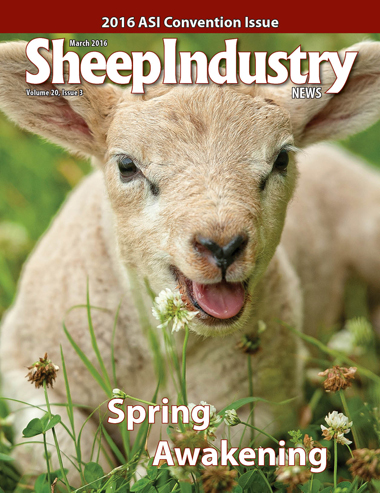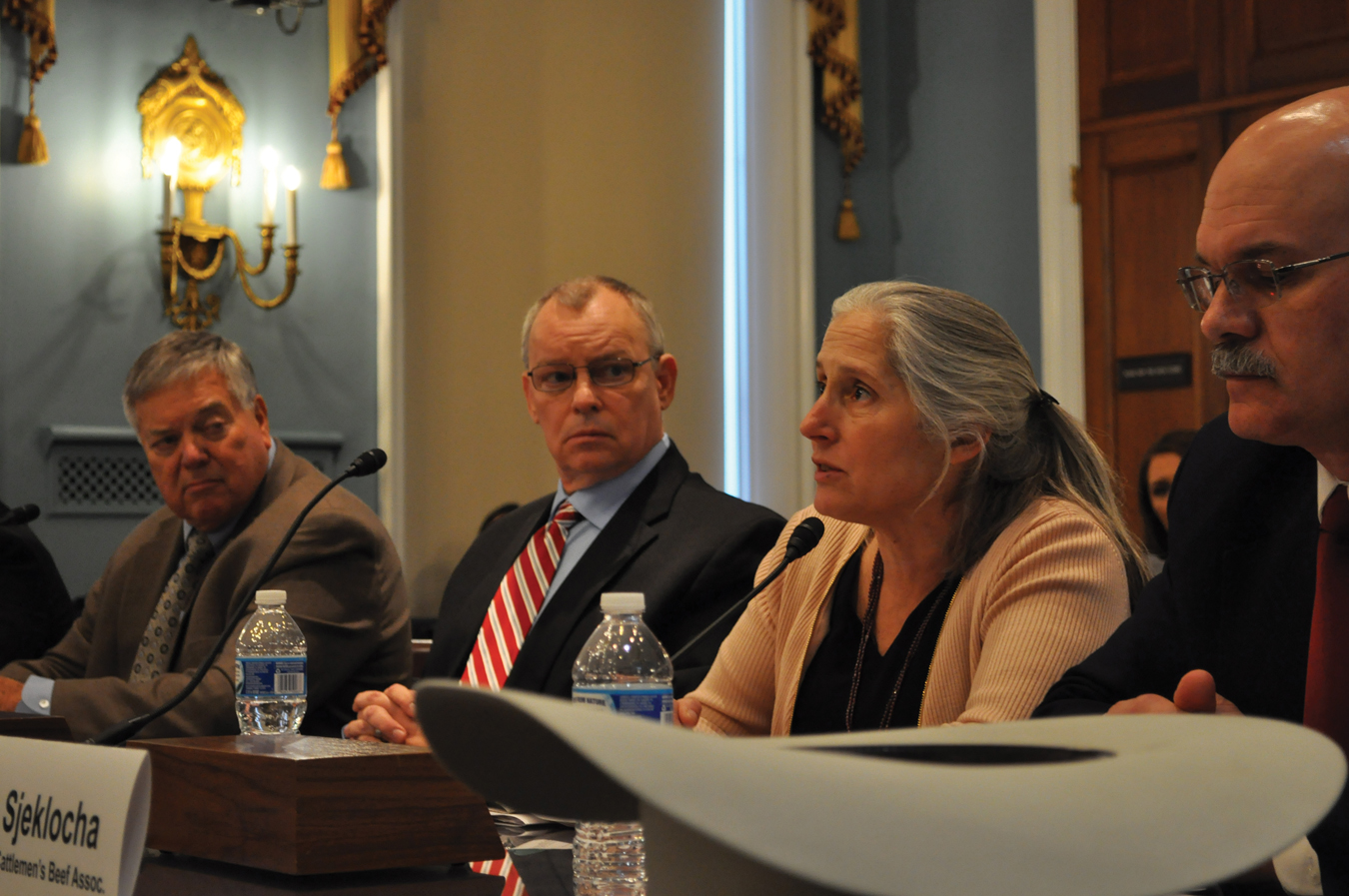
- March 2016
- President’s Notes
- 2016 ASI Convention
- The Strength of a United Voice
- State Execs Benefit from Media Training
- Award Winners Recognized
- Producer Panel Praises EBVs
- PERC Hears Survey Results
- Tips on Preparing for VFD
- Providing Consistent, Quality Lamb
- Let’s Grow Sets New Priorities
- Allotment Records Are Important
- Legislative Council Busy in 2015
- Next Generation Makes Plans
- Arizona Ag Tour
- Optimism For Wool Industry
- Make It With Wool Winners
- Working Dog Liability Insurance
- Seeking Young Producer for Tri-Lamb
- Wolf Testifies on Behalf of Sheep
- Sheep Inventory Up Again
- Use NSIP Data To Improve Lambing Rates
- Market Report
Wolf Testifies on Behalf of Sheep
 Foot-and-mouth disease can be difficult to detect during the early stages in sheep, which means it is important for the United States to have an accessible vaccine bank ready to meet demand in case of an outbreak, said Cindy Wolf, DVM, in testimony before the U.S. House of Representatives Agriculture Subcommittee on Livestock and Foreign Agriculture on Feb. 11 in Washington, D.C.
Foot-and-mouth disease can be difficult to detect during the early stages in sheep, which means it is important for the United States to have an accessible vaccine bank ready to meet demand in case of an outbreak, said Cindy Wolf, DVM, in testimony before the U.S. House of Representatives Agriculture Subcommittee on Livestock and Foreign Agriculture on Feb. 11 in Washington, D.C.
Wolf serves as co-chair of ASI’s Animal Health Committee and is also the small ruminant veterinary specialist with the University of Minnesota’s College of Veterinary Medicine. A longtime sheep producer, Wolf understands the frequent movements of sheep around the country and realizes the risks such movements present with relation to an airborne illness such as foot-and-mouth disease.
“One of the lessons learned from the 2001 FMD outbreak in the U.K. was that sheep were carrying and distributing the virus across the country and throughout marketing channels, spreading it to other livestock before the disease was recognized,” she testified. “Therefore, early detection, animal traceability, movement restrictions and vaccination is essential averting a very large outbreak in the U.S.”
While the United States hasn’t had an FMD outbreak since 1929, current vaccine supplies are inadequate should FMD return to this country in the near future.
“It is essential to the security of U.S. agriculture and the country that we are fully prepared and ready to produce potentially needed doses of the appropriate serotype in an extremely rapid timeframe,” said Wolf. “The American sheep industry appreciates the support of this committee in furthering a plan to bolster our preparedness for an FMD outbreak.”

